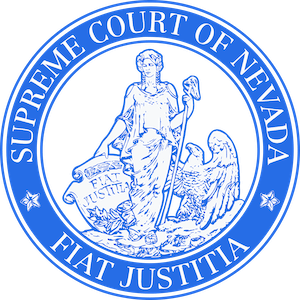Monday, October 7, 2019 - Las Vegas - Full Court
SFR Inv.’s Pool 1, LLC vs. Bank of America, N.A.
Docket Number: 73908
Las Vegas - 1:00 p.m. - Full Court
This is an appeal following a final judgment in a real property action involving an HOA superpriority lien foreclosure sale. Following trial, the district court ruled that respondent Bank of America, N.A. (BOA) tendered payment of the superpriority portion of the HOA lien prior to the sale and thus preserved its first deed of trust. In doing so, it found that while BOA, via counsel at Miles, Bauer, Bergstrom & Winters LLP (Miles Bauer) only mailed a letter to Nevada Association Services (NAS) requesting the amount of nine months of common assessments and did not tender a check, BOA’s actions still constituted tender. It also concluded that the sale was commercially unreasonable, the equities favored BOA, and appellant SFR Investments Pool 1, LLC (SFR), the purchaser of the property, was not a bona fide purchaser.
ISSUES:
SFR appeals raising seven issues: (1) BOA did not sufficiently tender; (2) the district court erred in finding SFR’s bona fide purchaser (BFP) status was irrelevant; (3) SFR was in fact a BFP; (4) that SFR’s BFP status trumped any equitable challenges; (5) the district court erred in granting “take subject to” equitable relief; (6) the district court erred in applying a commercial reasonableness standard; and (7) the HOA did not only foreclose on the subpriority portion of its lien.
Disclaimer:
This synopsis is intended to provide only general information about this case before the Nevada Supreme Court. It is not intended to be all-inclusive or reflect all positions of the parties. To access the documents that have been filed in this matter, type the docket number into the court’s case search page: https://caseinfo.nvsupremecourt.us/public/caseSearch.do
Clark Cty. Office of the Coroner/Med. Exam’r vs. Las Vegas Review Journal C/W 75095
Docket Number: 74604
Las Vegas - 1:30 p.m. - Full Court
This is an appeal from a district court order granting a writ of mandamus in a public records dispute. The Las Vegas Review-Journal (LVRJ) requested the Clark County Coroner’s office to produce several years’ worth of autopsy reports and other investigatory materials pertaining to child fatalities, specifically the deaths of children involved with public child welfare agencies.
ISSUES:
The Coroner’s office denied the request, asserting various statutory and common law confidentiality privileges and protections, and argued that public policy in favor of protecting private medical records justified withholding the autopsy reports in their entirety. LVRJ successfully petitioned for court-ordered production of records under the NPRA. The Coroner’s office appealed.
Disclaimer:
This synopsis is intended to provide only general information about this case before the Nevada Supreme Court. It is not intended to be all-inclusive or reflect all positions of the parties. To access the documents that have been filed in this matter, type the docket number into the court’s case search page: https://caseinfo.nvsupremecourt.us/public/caseSearch.do
Paulos vs. FCH1, LLC
Docket Number: 74912
Las Vegas - 3:00 p.m. - Full Court
This is an appeal from a district court order granting summary judgment in a tort action. The district court concluded that issue preclusion applied to appellant’s state law negligence claims against respondents, being that the federal district court determined that the police officer who allegedly used excessive force in arresting appellant had acted reasonably and was alternatively entitled to qualified immunity. This determination, the district court concluded, meant that appellant’s subsequent state negligence claims against the officer and the police department could not go forward, and it extended the federal court’s application of qualified immunity to the security guard who assisted the officer(s) in arresting appellant.
ISSUES:
Appellant argues that issue preclusion did not apply because the issue of reasonableness under a Fourth Amendment claim is different under state negligence law and that the private actors were not entitled to qualified immunity. For the same reasons, appellant argues that district court also erred in dismissing her negligence and false imprisonment claim against the security guard and the casino. Further, appellant contends that the district court erred in concluding that discretionary-act immunity barred her negligent hiring, training, and supervision claim against the police department because the conduct in question did not involve discretionary decision-making. Finally, appellant contends that the district court erred in applying issue preclusion because she appealed the federal district court’s decision to the Ninth Circuit Court of Appeals and it only reviewed one basis for affirming the district court—its qualified immunity determination—and thus, the unreviewed determination that the officer had acted reasonably is not issue preclusive.
Disclaimer:
This synopsis is intended to provide only general information about this case before the Nevada Supreme Court. It is not intended to be all-inclusive or reflect all positions of the parties. To access the documents that have been filed in this matter, type the docket number into the court’s case search page: https://caseinfo.nvsupremecourt.us/public/caseSearch.do

